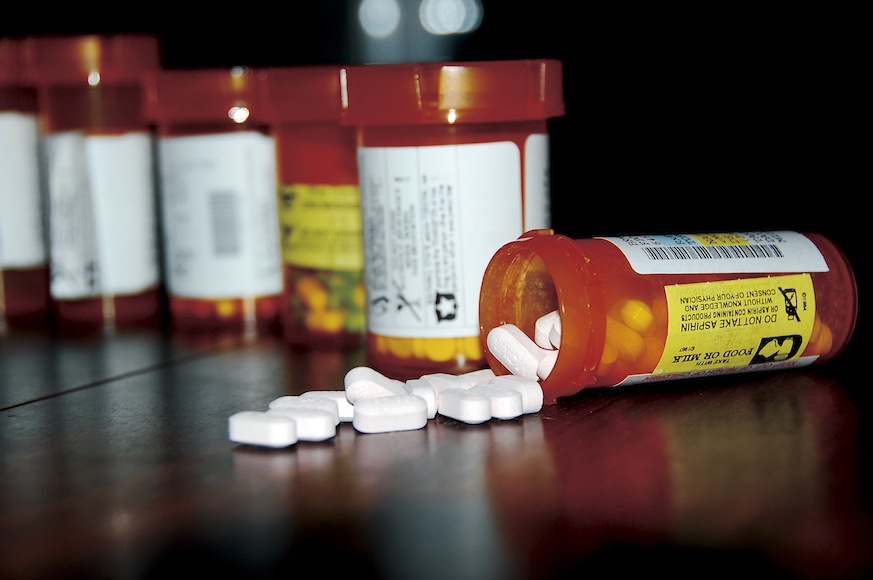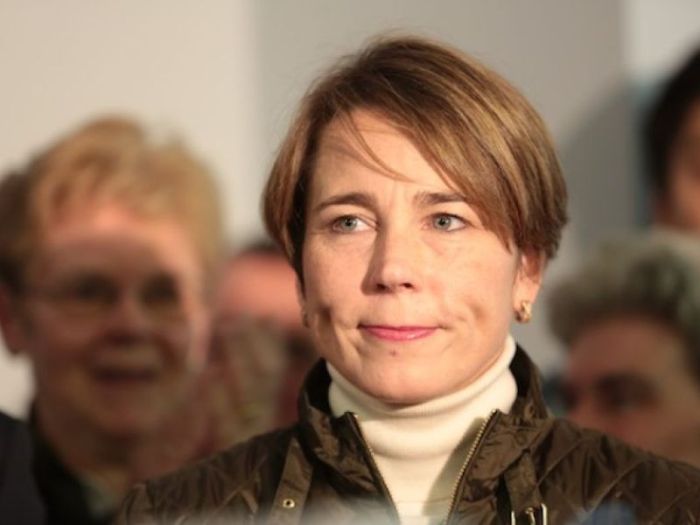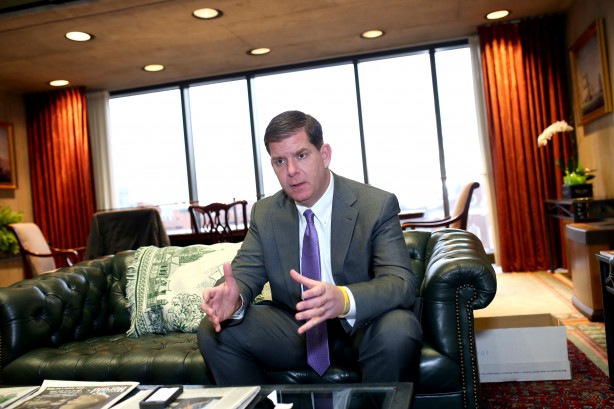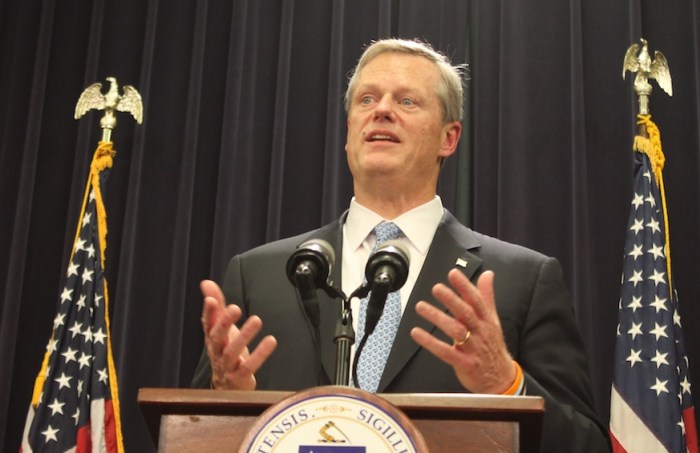The opioid epidemic in Massachusetts has been one of the worst in the country. In 2016, the rate of opioid overdose deaths here was 29.7 per 100,000 residents, compared to the national rate of 13.3.
Hopefully, though, there is relief on the way. Doctors in Massachusetts are leading the country in terms of reducing the number of opioid prescriptions, according to a new study from Blue Cross Blue Shield (BCBS).
Between 2013 and 2017, the study found, the number of written opioid prescriptions in Massachusetts went down by 51 percent — the largest drop in the nation.
“About three-quarters of all people who end up on heroin and other street drugs start with prescription medications,” said Dr. Ken Duckworth, medical director for behavioral health at BCBS Massachusetts. “When you think about prescribing legal opiates from doctors, you’re really looking at the prevention angle.”
The report looked at patients receiving opioid prescriptions via BCBS insurance in all 50 states. While not a perfect sample, Duckworth noted, the insurance company covers 100 million people across the country, and 241,900 BCBS members were diagnosed with opioid use disorder in 2017.
Nationally, there was a 29 percent drop in opioid-based medication prescriptions among all BCBS commercially insured members, according to the report.
Massachusetts, however, stuck out the most in terms of improvement: While there were 394 opioid prescriptions written for every 1,000 BCBS members here in 2013, that plummeted to 193 in 2017 — a decrease of 51 percent. The next highest decline was 46 percent for Rhode Island.
“That’s a meaningful drop,” Duckworth said. “We think it’s a real piece of the puzzle. It’s not the whole story in the opiate crisis — this is not a solved problem — so this report really summarizes the idea that on the prevention of physician-induced dependents of opiates, Massachusetts is doing a good job.”
How else are experts fighting the opioid epidemic in Massachusetts?
Reducing opioid prescription rates, as Duckworth noted, is just one piece of the puzzle that is ending the opioid epidemic in Massachusetts, and it’s not the only thing being done to try to turn the tide.
“The other piece we’ve done as a health plan is liberalized benefits for getting treatment to opioid addiction,” Duckworth said. “We removed the copay for methadone, eliminated the copay for Narcan. …We try to think about how a health plan can be part of the equation, [but] obviously this is a very complex issue.”

Duckworth laid out four areas of public health when it comes to fighting the opioid epidemic in Massachusetts: prevention (like reducing opioid prescriptions), intervention (like eliminating the narcan copay), treatment and recovery.
For those last two areas, he pointed to a law enforcement effort: PAARI, or Police Assisted Addiction And Recovery Initiative, which launched in Gloucester alongside the Angel Program in 2015 and was swiftly mimicked by law enforcement agencies around the country.
Through PAARI, anyone who comes to police seeking help for their opioid addiction receives treatment rather than facing arrest.
In June PAARI celebrated its third anniversary, which Executive Director Allie Hunter McDade called in a statement “an inspirational reminder of the critical, lifesaving work that our colleagues in the law enforcement, public health and government sectors are doing each day.”
“We’re so proud of progress we’ve made in this fight against addiction,” she continued, “but it’s important to remember that there’s still more work to be done to reverse the trend of overdose deaths that have robbed communities and families of loved ones across America.”
These efforts are alongside a host of responses from the state and individual municipalities like Boston. Last year marked the first time opioid deaths were down compared to the year before, Gov. Charlie Baker announced in February. Duckworth hopes the opioid epidemic in Massachusetts has truly plateaued thanks to all of these efforts, he said, but experts are still waiting to see a true pattern of opioid death reduction over time.
“Fortunately,” he said, “we have a lot of people working on this.”



















